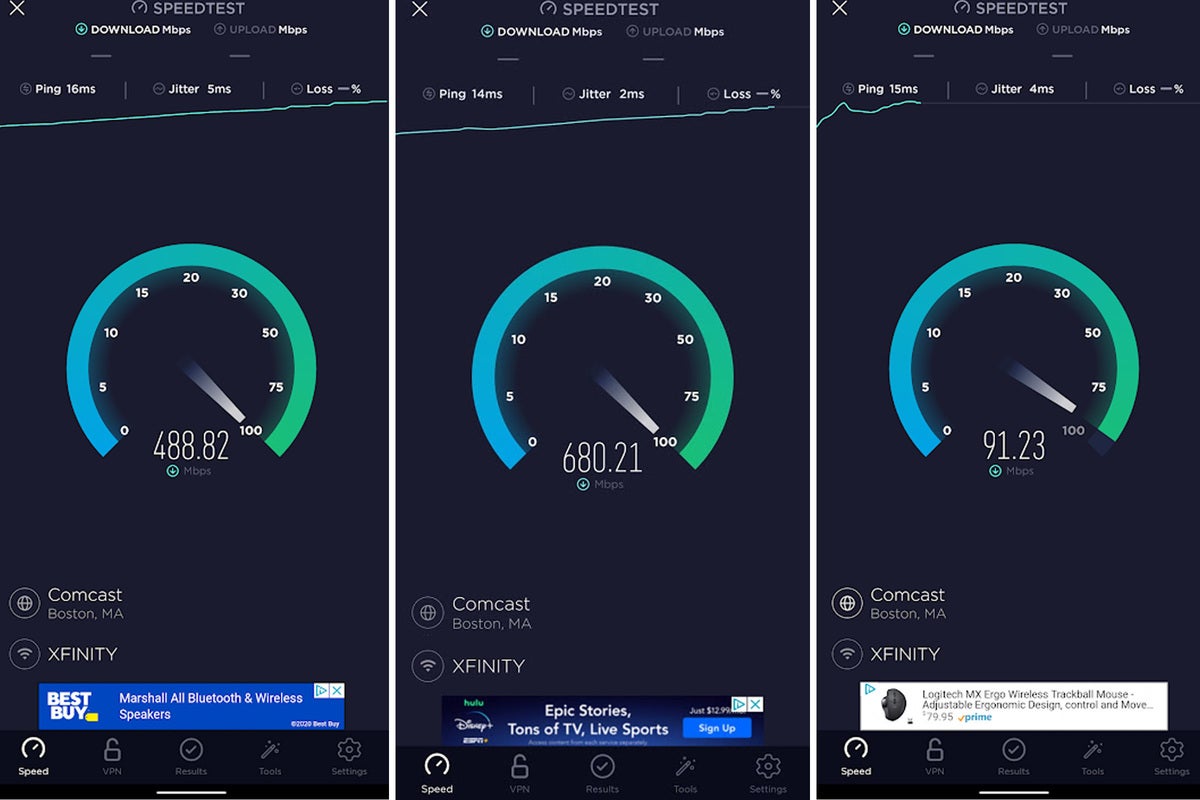Table of Content
Wireless internet seems like a need rather than a want these days. Whether it’s for work or play, most of us require the web’s functionalities during our day-to-day life. Staying in touch with friends, researching for a school project, or getting through your 9-to-5, it’s hard to imagine a time when the internet wasn’t a ubiquitous feature of our lives. PCMag supports Group Black and its mission to increase greater diversity in media voices and media ownerships.
Wi-Fi is great, but wired connections are faster and more reliable. If you have high-priority devices like a desktop, gaming console, or smart TV, it might be worth your while to plug them in to your router with an Ethernet cable instead of relying on Wi-Fi. Unsure what internet speeds you need to support your online habits? Check out our guides to internet speed for online gaming and video streaming requirements. If you have just one stubborn dead zone, a booster would probably be a good fit.
Plans & devices
If you have several cables running in the same direction, these wall mounts ($15 for a pack of 50) work well. To get a good sense of any weak links in your Wi-Fi connection -- and there are plenty of free services on the web that'll help you do just that. In fact, a Junesurvey from McKinseyfound that 58% of Americans still have the opportunity to work from home at least one day a week.
If you're using an old device, a new phone or hotspot may allow you to connect to new bands. Newer devices support newer versions of the LTE or 5G specification and allow for faster data rates. If you place an extender somewhere that already has a weak signal, you still may have slow speeds while you’re browsing the web.
Bonus tip for faster internet
Technologies change rapidly, and one of the best ways to speed up your wireless network is to use the latest hardware. Older, lower performance technologies like Wireless-N (802.11n) and Wireless-AC (802.11ac) are still in most mobile and IoT devices, while other technologies are nearly obsolete. The Netgear Nighthawk X6S EX8000 is a high-end WiFi booster with speeds up to 3 Gbps. Last but not least, consider contacting your internet service provider and asking for help. The devices connected to the Internet use up your router’s bandwidth. Make sure all of the devices you aren’t using are completely turned off so they’re not eating up your wifi signal.
Even if you don’t mind watching/seeing advertisements, your internet connection speed does. Ad media slows down your internet connection, so sometimes it’s easiest to just block them. Install an ad-blocking plugin that will shut down those data-heavy auto-play videos, and you’ll free up some breathing room for your connection. Switching your modem from a 2.4 GHz channel to a 5 GHz channel will increase internet speeds, resulting in more bandwidth and less interference.
Test your internet speed
The internet is a core part of modern life, and faster speeds have never hurt anyone. Although your ISP and the plan you’re on will limit your maximum speeds, there are many ways to get the most out of that limited bandwidth and speed up your internet connection. The free app we like most is Fing, which works with both Android and iPhone devices. If that’s the case in your home, try to place your router as close to any areas where you usually need an internet connection or as close to the devices you use the most.

If your ISP owns the router, you may need to contact them to change it every so often and preserve the integrity of your home network. Go to your router’s administrative dashboard to ensure that your firmware is the most updated version. If you rent or lease one from your ISP, they should be running those updates automatically or alerting you to when and how it must be done. Contact your ISP if you suspect your firmware is out of date and needs an upgrade. An occurrence here and there doesn’t make too much of a difference to most users. However, over time, these constant WiFi problems can make anybody frustrated enough to want to get off the grid.
If the everything seems okay, try running the test again wirelessly, standing right next to the router. If you get similarly good speeds next to the router, but not elsewhere in the house, then your Wi-Fi coverage may be to blame. If your internet is still slow standing right next to the router, you may have some outdated gear that needs an upgrade. If you feel like your Wi-Fi has gotten sluggish, there are many tools you can use to test the speed of your internet. There are also a few tricks you can try to troubleshoot your network issues. However, if the only way you can get decent reception is by standing next to your wireless router, these simple tips can help optimize your network.
When you’re finished, try connecting to your wifi again to see if you get better performance. Every device connected has to send data to the router to stay on the network. This data can interfere with yours and degrade your signal quality, especially if you’re far away from the router. So, by disconnecting other devices, you’ll decrease the time spent resending data and increase your effective speeds. We know slow internet speeds can feel physically painful, especially if you deal with a slow connection and high priorities every day. Use these ten tips to up your internet speed a bit without wading through overly technical server details, and don’t worry—you should be back to uninterrupted binging in no time.
Data caps are one of the biggest culprits of slow internet speed out there. ISPs don’t advertise their data caps for obvious reasons, but they can seriously mess with your connection. We’ve rounded up 10 easy, cheap, and practical tips to get you a faster internet connection and stop waiting for Netflix to buffer. Everybody wants faster internet and Wi-Fi, but some tips are straight-up fake and others are really technical and/or expensive. Follow our tips to speed up your connection, or compare internet providers if you think it's time to switch.

However, we all know that there’s also nothing more frustrating than a slow or spotty WiFi connection. It's entirely possible the problem has nothing to do with interference or Wi-Fi range. If your network is open, or has a weak password, you could have an unwanted guest or two piggybacking on your network. If the neighbor is downloading multiple 4K movies on your Wi-Fi, your video chats will suffer.
Try different numbers until you find one that works best for your network. Most modern routers are dual-band so they feature both a 2.4 GHz channel and a 5 GHz channel. If it’s not automatically set, choose the 2.4 GHz WiFi for maximum reach. You might have even experienced maxing out your internet abilities at home if you’ve ever had multiple devices connected to WiFi while downloading a video or watching Netflix. The access point becomes overloaded and creates delays and annoying interruptions for the end user. There are ways to solve this, however, as we will discuss later.
QoS settings can typically be found under advanced settings in the network's administrator interface. Run another speed test to see if that provides a better signal and faster speeds over the Automatic setting in your problem areas. Most routers will choose the channel for you, but if neighboring wireless networks are also using the same channel, you'll encounter signal congestion. A good router set to Automatic will try to choose the least congested channel, but older or cheaper routers may just choose a predefined channel, even if it isn't the best one. If you really want to get the most out of your current router, the adventurous can look at a third-party firmware, like the open-source DD-WRT. This can ramp up performance and give you access to more advanced networking features, including the ability to install a VPN right onto your router.
Let's start with a speed test
Typical sources of Wi-Fi signal impediments in residences include brick walls, large metal appliances, microwave ovens, and cordless phones. Sometimes, raising the height of the router improves the range because many obstructions are located at floor or waist height. We probably don't have to tell you this, but you need a password on your Wi-Fi network. It's good for keeping hackers away and keeping neighbors from Netflixing off of your bandwidth, which will definitely slow you down. Make sure you use AES encryption, which is both the most secure and most speed-friendly security option. Check its documentation or look up the instructions online if you're not sure, but you should be able to find the option somewhere in the device settings.

No comments:
Post a Comment